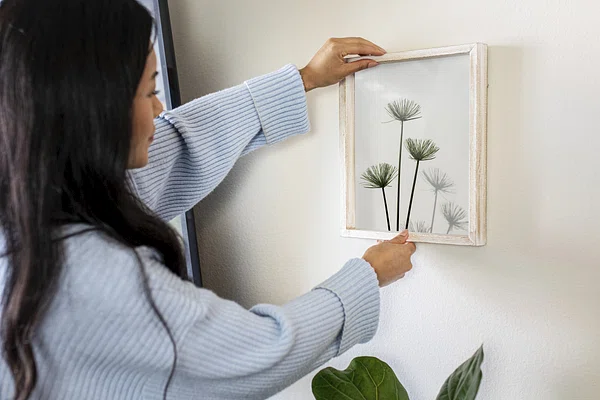In today’s fast-paced world, the concept of “slow living” may seem like an elusive dream. However, embracing the principles of slow living can significantly enhance your physical health and overall quality of life. Slow living isn’t about doing everything at a snail’s pace; it’s about savoring each moment, simplifying your life, and prioritizing your well-being. In this article, we’ll explore how to apply the principles of slow living to improve your physical health.

Navigating Life in the Slow Lane for Enhanced Physical Well-Being
In the relentless hustle and bustle of modern life, there’s a resounding call for a change of pace, a shift towards serenity amidst the chaos. Enter the enchanting world of “slow living,” a mindful lifestyle philosophy that’s gaining momentum in today’s fast-paced society. Slow living isn’t merely a passing trend; it’s a transformational approach to life that champions simplicity, presence, and the pursuit of true well-being. This lifestyle shift isn’t just about the pursuit of leisure; it’s intricately connected to our physical health, profoundly impacting how we navigate the challenges of our daily routines.
As the world wakes up to the wisdom of living slowly, real practitioners from diverse backgrounds are sharing their experiences and wisdom. From seasoned mindfulness practitioners in the quiet corners of the world to celebrity advocates who’ve harnessed the power of slow living to rejuvenate their lives, the slow living movement has found resonance in unexpected places.
Here, we’ll delve into the fascinating realm of slow living and its deep-rooted connection to physical health. We’ll explore the real stories of those who have embraced this transformative lifestyle, uncovering the secrets to their vitality and peace of mind. As the belief in the merits of slow living continues to grow, we’ll also examine the reasons behind its rising popularity and its potential to redefine the way we approach our well-being in the modern age. So, get ready to step into a world where ‘slow’ isn’t synonymous with ‘lazy,’ but rather a powerful catalyst for living a healthier, more balanced, and fulfilling life.

Mindful Eating: Nourishing the Soul in the Slow Living Way
In our fast-paced world, meals are often squeezed into our schedules like any other task, hastily consumed as we multitask through our day. This is where the concept of mindful eating, a central pillar of slow living, comes into play. It’s not just about what we eat, but how we eat it and the profound impact it has on our physical health and overall well-being.
The Importance of Mindful Eating in Slow Living
Mindful eating is the practice of bringing your full attention and awareness to the act of eating. In the context of slow living, it’s a conscious choice to slow down, savor each bite, and appreciate the nourishment that food provides. This practice aligns perfectly with the slow living philosophy, as it encourages us to be present in the moment, fostering a deeper connection with our food and our bodies.
How to Eat Mindfully and Savor Each Bite
Begin with gratitude: Before you start eating, take a moment to express gratitude for the food in front of you. This simple act sets a positive tone for the meal.
Engage your senses: As you eat, engage all your senses. Notice the colors, textures, and aromas of your food. Pay attention to the sound of each bite and the flavors that dance on your taste buds. For vibrant, healthy meals, visit this post!
Eat slowly: Chew your food slowly and thoroughly. Put your utensils down between bites. This deliberate pace allows your body to register fullness and prevents overeating.
Mindful portion control: Be aware of portion sizes. Serve yourself smaller portions, and if you’re still hungry after finishing, you can always have more.
Eliminate distractions: Turn off the TV, put away your phone, and create a quiet, dedicated space for your meal. Distractions take your focus away from the experience of eating.
Benefits of Mindful Eating for Physical Health
The advantages of practicing mindful eating in the context of slow living extend far beyond the meal itself:
Healthy weight management: By eating mindfully, you’re more in tune with your body’s hunger and fullness cues. This reduces the likelihood of overeating and supports a healthy weight.
Improved digestion: Chewing food thoroughly aids in digestion, leading to better nutrient absorption and reduced digestive discomfort.
Enhanced appreciation for food: Mindful eating allows you to truly savor your meals, fostering a deeper appreciation for the taste and quality of the food you consume.
Reduced stress eating: Many of us turn to food as a way to cope with stress. Mindful eating can break this cycle, as it encourages healthier responses to stress and emotional triggers.
Better relationship with food: Mindful eating promotes a more positive and balanced relationship with food, reducing the tendency to view food as the enemy or indulge in restrictive diets.
Incorporating mindful eating into your slow living lifestyle can be a powerful tool for improving physical health. It transforms each meal into a moment of nourishment and self-care, fostering a profound connection between your body, your food, and the present moment. By embracing this practice, you’ll find that not only does your physical health benefit, but your overall well-being is enriched as well.

Prioritize Sleep: The Cornerstone of Physical Well-Being
In the hustle and bustle of modern life, sleep often takes a backseat to our packed schedules and endless to-do lists. Yet, it’s within the realm of slumber that our bodies undergo essential repairs and rejuvenation, making quality sleep an indispensable pillar of physical well-being. In the context of slow living, prioritizing sleep becomes not just a necessity but a deliberate act of self-care, and here’s why:
The Significance of Quality Sleep for Physical Well-Being
Quality sleep is more than just a period of rest; it’s a critical phase during which our bodies undergo a multitude of restorative processes. When we sleep soundly, our brains consolidate memories, repair tissues, and regulate hormones. Our immune systems also receive a boost, enhancing our ability to ward off illness. Adequate sleep supports:
Physical recovery: Muscles repair and grow during deep sleep, making it crucial for athletes and those seeking physical fitness.
Mental clarity: A well-rested mind is better equipped to handle stress and make sound decisions, which in turn positively affects our physical health.
Weight management: Quality sleep helps regulate hormones responsible for hunger and appetite, reducing the likelihood of overeating and weight gain.
Heart health: Chronic sleep deprivation has been linked to cardiovascular issues, emphasizing the importance of sleep for heart health.
Inflammation reduction: Sleep plays a pivotal role in lowering inflammation in the body, reducing the risk of chronic diseases.
Creating a Calming Bedtime Routine
Set a Consistent Schedule: Aim to go to bed and wake up at the same time every day, even on weekends. This helps regulate your body’s internal clock.
Wind Down Gradually: An hour before bedtime, engage in relaxing activities like reading, gentle stretching, or taking a warm bath. Avoid stimulating activities or bright screens.
Optimize Your Sleep Environment: Ensure your bedroom is conducive to sleep. Keep the room dark, quiet, and at a comfortable temperature. Invest in a comfortable mattress and pillows.
Limit Stimulants: Avoid caffeine and heavy meals close to bedtime. These can interfere with your ability to fall asleep.
Practice Relaxation Techniques: Consider mindfulness meditation or deep breathing exercises to calm your mind before sleep.
The Role of Technology in Sleep Disruption
Technology, while immensely helpful in many aspects of our lives, can also be a significant disruptor when it comes to sleep. The bright screens of our devices emit blue light that can interfere with our natural sleep-wake cycle. To mitigate this:
Set a Technology Curfew: Establish a time in the evening when you’ll stop using electronic devices. This allows your brain to transition to a more relaxed state before bedtime.
Use Blue Light Filters: Many devices and apps offer blue light filter options that reduce the stimulating effects of screen time.
Create Charging Stations Outside the Bedroom: Keep your devices out of the bedroom to minimize the temptation to check emails or social media late at night.
Incorporating these practices into your slow living lifestyle not only prioritizes the importance of quality sleep for physical well-being but also aligns with the overarching philosophy of mindful, intentional living. By making sleep a cherished part of your daily routine, you’ll be nurturing not just your physical health, but your overall well-being.

Stress Reduction: Unwinding the Tensions of Modern Life with Slow Living
In the fast-paced, demanding world we inhabit, chronic stress has become an all too familiar companion. Slow living, with its deliberate and mindful approach to life, offers a refreshing alternative—a means to reduce the weight of chronic stress and nurture a more balanced, peaceful existence. In this segment, we’ll explore how the principles of slow living can be harnessed to combat stress, delve into the powerful realm of mindfulness practices, and provide practical tips to seamlessly integrate stress reduction into your daily life.
How Slow Living Can Reduce Chronic Stress
Slow living encourages a shift from the constant hustle and urgency of modern life towards a more deliberate and mindful approach. By embracing the following principles, slow living can help alleviate chronic stress:
Prioritizing Presence: Slow living emphasizes the importance of being fully present in the moment, reducing anxiety about the past or future.
Simplicity and Minimalism: Simplifying your life by focusing on what truly matters reduces the stress associated with clutter and excess.
Balancing Work and Leisure: Slow living promotes a healthy work-life balance, ensuring that you have time for relaxation and self-care.
Mindful Consumption: Choosing to be more mindful of what you consume, from food to media, helps in reducing stress triggers.
Mindfulness Practices for Stress Reduction
Meditation: Meditation is a cornerstone of mindfulness. Dedicate a few minutes each day to sit quietly, focus on your breath, and allow your mind to settle. Over time, this practice can help reduce stress and increase mental clarity.
Deep Breathing Exercises: Deep, mindful breathing can calm the nervous system and reduce stress. Practice deep breathing exercises when you feel tension rising, focusing on your breath to bring you back to the present moment.
Body Scan: A body scan is a form of mindfulness where you mentally scan your body, paying attention to any areas of tension or discomfort. This practice can help you release physical stress.
Yoga: Yoga combines movement, breath, and mindfulness to reduce stress and promote relaxation. It’s an excellent way to stretch and strengthen your body while calming your mind.
Tips for Incorporating Stress Reduction into Daily Life
Start Small: Begin with short, manageable periods of mindfulness practice. As you become more comfortable, gradually increase the duration.
Routine Integration: Incorporate mindfulness practices into your daily routine. For example, practice deep breathing while commuting or engage in a short meditation session before bedtime.
Nature Connection: Spend time in nature, whether it’s a walk in the park or simply sitting in your garden. Nature has a calming effect that can reduce stress.
Digital Detox: Set aside designated times to unplug from screens and technology. Disconnecting from the digital world can alleviate stress caused by information overload.
Gratitude Journal: Maintain a gratitude journal, where you jot down things you’re grateful for each day. Focusing on the positive can shift your mindset and reduce stress. Refer to my FREE PDF on the Living Ganbatte Homepage to start!
By embracing the principles of slow living and incorporating mindfulness practices into your daily life, you can effectively reduce chronic stress and experience a greater sense of calm, balance, and well-being. Remember, the journey toward stress reduction is a gradual one, so be patient with yourself as you explore these techniques and find what works best for you.

Nature Connection: Reconnecting with Tranquility and Wellness through Slow Living
In the midst of our bustling lives, where digital screens and concrete jungles dominate our daily existence, there’s a profound and often underestimated remedy waiting just beyond our front doors: nature. Slow living beckons us to rekindle our connection with the natural world, recognizing the immense restorative power it holds for our physical and mental health. In this segment, we’ll shine a light on the myriad benefits of spending time in nature, suggest simple yet fulfilling activities, and explore the calming effects nature has on our well-being.
The Restorative Benefits of Nature
Stress Reduction: Nature offers a respite from the relentless demands of modern life. The sights, sounds, and serenity of natural settings can significantly reduce stress levels, promoting overall well-being.
Enhanced Mental Clarity: Time spent in nature encourages mental clarity and mindfulness. It provides a mental break from the constant barrage of information and technology.
Improved Physical Health: Activities in nature, such as walking or hiking, promote physical health. Fresh air and natural light can boost your immune system and improve your mood.
Emotional Balance: Nature has a unique ability to restore emotional equilibrium. It fosters feelings of calmness, gratitude, and a sense of connectedness to the world around us.
Activities to Reconnect with Nature
Leisurely Walks: A simple stroll through a park, along a beach, or in a forest can be incredibly rejuvenating. Let the sights, sounds, and scents of nature wash over you.
Hiking: For those seeking a more immersive experience, hiking offers the opportunity to explore natural landscapes more deeply. It challenges your body and rewards you with stunning vistas.
Picnics: Pack a picnic and enjoy a meal surrounded by nature. Whether it’s in a nearby park or your backyard, dining outdoors enhances the connection with the natural world.
Gardening: Tending to plants and flowers in your garden can be a meditative and fulfilling activity that keeps you connected to the earth.
Birdwatching: Observing birds in their natural habitat can be a peaceful and educational experience, fostering a deeper appreciation for wildlife.
The Calming Effects of Nature on Physical and Mental Health
Reduced Anxiety: Studies have shown that spending time in natural environments can reduce symptoms of anxiety. The soothing sounds of running water or the rustling of leaves can be especially calming.
Improved Mood: Nature releases endorphins and reduces cortisol levels, which can significantly enhance mood and reduce symptoms of depression.
Enhanced Creativity: Nature sparks creativity by offering new sights and experiences. It provides a mental refresh that can help with problem-solving and innovative thinking.
Restored Focus: Time in nature can improve attention and concentration, making it an excellent remedy for mental fatigue.
By immersing yourself in the beauty and tranquility of nature, you not only rejuvenate your spirit but also improve your physical and mental health. Slow living invites you to step outside, breathe in the fresh air, and embrace the natural world as a source of solace and healing. So, why not heed the call of the outdoors and let nature’s wonders enrich your well-being?
Simplify Your Schedule: The Power of Prioritization in Slow Living
In a world characterized by ceaseless activity and a constant demand for our attention, the idea of simplifying our schedules may appear counterintuitive. However, in the realm of slow living, the act of decluttering our daily commitments is a foundational principle that can lead to reduced stress, increased well-being, and more room for self-care. In this segment, we’ll delve into the significance of simplifying daily commitments, offer strategies for effective prioritization, and illuminate how this simplification ultimately paves the way for a healthier, more balanced life.
The Importance of Simplifying Daily Commitments
Our lives are often a jigsaw puzzle of commitments, from work and family obligations to social activities and personal pursuits. In the quest for productivity and accomplishment, we tend to overcommit, leading to a cluttered, stress-inducing schedule. Slow living encourages us to reassess the true value of these commitments and streamline our daily lives.
Strategies for Prioritizing Tasks that Matter Most
Evaluate Your Values: Begin by reflecting on your core values and long-term goals. What truly matters to you? Use this as a compass to guide your decision-making.
The Power of “No”: Learn to say “no” graciously and without guilt. It’s a vital skill for guarding your time and energy.
The 80/20 Rule: The Pareto Principle suggests that roughly 80% of outcomes come from 20% of efforts. Identify the tasks that fall into this high-impact category and prioritize them.
Create a To-Do List: List your daily tasks, then categorize them into “essential” and “non-essential.” Focus your energy on the essentials.
Time Blocking: Allocate specific time blocks for tasks and activities, ensuring you don’t overcommit or overextend yourself.
How Simplification Reduces Stress and Allows for Self-Care
Reduced Stress: Simplifying your schedule removes the overwhelm caused by excessive commitments. With fewer tasks on your plate, you can devote more time and attention to each one, resulting in better quality work and less stress.
Increased Presence: When your schedule isn’t packed to the brim, you have the mental space to be fully present in each moment. Whether it’s a work project, a family dinner, or leisure time, your presence and engagement are enhanced.
Enhanced Self-Care: With a simplified schedule, you free up precious moments for self-care activities that nourish your mind, body, and soul. Whether it’s meditation, a hobby, or simply relaxing with a book, self-care becomes a non-negotiable.
Better Health: Reduced stress and increased self-care contribute to improved physical and mental health. Lower stress levels, enhanced sleep, and better overall well-being are some of the rewards of a simplified schedule.
More Meaningful Connections: With less rushing and more time for connection, your relationships can flourish. Whether it’s quality time with family or meaningful interactions with friends, simplicity allows for deeper connections.
By embracing the principle of simplifying your schedule, you’re not just decluttering your calendar but also prioritizing your well-being and fostering a deeper sense of balance in your life. Slow living encourages us to be mindful of our commitments, helping us realize that it’s not about doing more but doing what truly matters. In doing so, we unlock the transformative power of simplicity.

Unplug Regularly: Reclaiming Your Life from the Digital Onslaught in Slow Living
In our hyperconnected world, the ceaseless buzz of technology can often feel inescapable, tethering us to a perpetual state of urgency and distraction. Slow living, however, champions the art of stepping back, disconnecting from the digital deluge, and reclaiming moments of calm and self-reconnection. In this segment, we’ll delve into the profound impact of technology on our fast-paced lives, advocate for the importance of tech-free intervals during the day and digital detox weekends, and illuminate the rich benefits of unplugging for the restoration of our true selves.
The Impact of Technology on a Fast-Paced Lifestyle
The pervasive influence of technology has brought about an era of unparalleled convenience, but it has also ushered in a frenetic pace of life:
Information Overload: The constant barrage of information can lead to cognitive overload, reducing our capacity for deep focus and reflection.
Stress and Anxiety: The pressure to be constantly connected and responsive can lead to heightened stress and anxiety levels.
Digital Addiction: The allure of social media and other digital distractions can consume our time and attention, often to the detriment of real-world experiences.
Reduced Presence: Technology can hinder our ability to be fully present in the moment, affecting the quality of our relationships and life experiences.
Advocating for Tech-Free Times and Digital Detox Weekends
Tech-Free Intervals: Designate specific times during the day when you disconnect from technology. This can be during meals, before bedtime, or in the early morning.
Digital Detox Weekends: Set aside entire weekends or days when you go completely offline. Use this time to engage in analog activities, connect with nature, or nurture hobbies.
Create Tech-Free Zones: Designate areas in your home, such as the bedroom or dining room, where technology is off-limits. This fosters an environment conducive to presence and connection.
Limit Notifications: Customize your device settings to receive only essential notifications. Reducing the constant stream of alerts can minimize distractions.
The Benefits of Unplugging for Self-Reconnection
Enhanced Presence: Unplugging allows you to be fully present in your daily experiences. Whether it’s a conversation with a loved one or a leisurely walk, you can savor each moment.
Reduced Stress: Disconnecting from technology reduces the pressure to be constantly available or responsive, alleviating stress and anxiety.
Improved Sleep: Exposure to the blue light emitted by screens can disrupt sleep patterns. Unplugging before bedtime promotes better sleep quality.
Rekindled Creativity: Digital detox periods can reignite your creative spark. With fewer distractions, you have the mental space for innovative thinking and problem-solving.
Deeper Connections: Real-world interactions and face-to-face communication flourish when technology takes a backseat. Unplugging nurtures more meaningful connections with others.
Self-Reflection: Time away from screens fosters self-reflection and introspection, enabling you to reconnect with your inner self and personal values.
Incorporating tech-free intervals and digital detox weekends into your slow living lifestyle is not just a break from the digital world; it’s an intentional act of self-reconnection. By stepping away from the constant demands of technology, you can reclaim precious moments of presence, reduce stress, and rediscover the richness of the offline world. Slow living reminds us that true connection and a fulfilling life extend beyond the digital realm, and it begins with the choice to unplug.

Practice Gratitude: Cultivating Joy and Contentment through Slow Living
In a world that often encourages us to strive relentlessly for more—more success, more possessions, more accomplishments—slow living introduces a transformative counterbalance: gratitude. At its core, gratitude is the practice of appreciating the present moment, cherishing what we have, and finding contentment in the here and now. In this segment, we’ll explore how gratitude seamlessly integrates into the slow living philosophy, advocate for the use of a gratitude journal, and illuminate how this practice fosters contentment while reducing the ceaseless striving that often characterizes modern life.
Gratitude in the Context of Slow Living
At the heart of slow living is a call to embrace the present, savor each moment, and cultivate mindfulness. Gratitude beautifully aligns with these principles by inviting us to recognize the beauty, abundance, and wonder of our lives as they are, rather than constantly yearning for what could be. It’s a reminder that happiness isn’t always found in the pursuit of more, but in the appreciation of what’s already here.
The Gratitude Journal: A Pathway to Mindfulness
One powerful tool in the practice of gratitude is the gratitude journal. This simple yet transformative practice involves regularly writing down things you’re grateful for. Here’s how to get started:
Choose a Journal: Select a notebook or journal that resonates with you. It can be as elaborate or as simple as you like.
Set a Routine: Dedicate a specific time each day to write in your gratitude journal. It could be in the morning as you start your day or in the evening as you reflect on the day’s events.
Write from the Heart: Each day, jot down three to five things you’re grateful for. These can range from significant life events to small, everyday pleasures.
Reflect on Why: Alongside each entry, briefly reflect on why you’re grateful for it. This deepens your appreciation and connection to each moment of gratitude.
Consistency is Key: Make it a daily habit. Over time, you’ll find that your mindset shifts toward a more positive and appreciative outlook.
Fostering Contentment and Reducing Striving
Gratitude has the remarkable ability to foster contentment and reduce the relentless striving that often characterizes modern life:
Shift in Perspective: Gratitude encourages us to shift our focus from what we lack to what we have. This reframing cultivates contentment in the present moment.
Reduced Materialism: As we embrace gratitude, the desire for material possessions and external validation tends to diminish. We find contentment in the intangible aspects of life.
Increased Resilience: Gratitude bolsters our emotional resilience. It helps us navigate challenges with a more positive and hopeful outlook.
Enhanced Relationships: Expressing gratitude to others strengthens our relationships. It fosters a culture of appreciation and connection.
Improved Mental Health: Studies have shown that regular gratitude practices can reduce symptoms of depression and anxiety while increasing overall well-being.
By incorporating the practice of gratitude into your slow living lifestyle, you’ll find that contentment and joy are not elusive destinations but rather daily companions on your journey. It’s a gentle reminder that in the simplicity of gratitude, life’s true richness is found, and the relentless pursuit of more gives way to a deep appreciation for what is.

Hydrate Mindfully: Nurturing Your Body and Soul through Slow Living
Amid the flurry of our daily lives, it’s easy to overlook one of the simplest yet profoundly impactful acts of self-care: mindful hydration. Slow living encourages us to embrace not just the pace of life but also the pace of nourishing our bodies. In this segment, we’ll explore the importance of mindful hydration, suggest the practice of sipping water slowly throughout the day, and delve into the myriad benefits this simple act bestows upon our digestion and overall well-being.
The Importance of Mindful Hydration
Hydration is the foundation of health, vitality, and well-being. Yet, in our fast-paced world, many of us guzzle water hurriedly, often as an afterthought to our busy schedules. Mindful hydration invites us to treat the act of drinking water as an opportunity for self-care and reflection.
Sipping Water Slowly Throughout the Day
Start the Day Right: Begin your morning with a glass of room-temperature water. This gentle, hydrating ritual kickstarts your metabolism and prepares your body for the day.
Sip, Don’t Gulp: Instead of downing a glass of water in one go, take small sips throughout the day. Carry a reusable water bottle with you as a reminder.
Mindful Pause: Use each sip as a moment to pause, breathe, and be present. Close your eyes for a brief second if you can, and savor the sensation of water hydrating your body.
Lemon or Herbal Infusions: Add slices of lemon, cucumber, or fresh herbs to your water. Not only does this infuse flavor, but it also makes the act of hydrating more enjoyable and mindful.
Benefits of Mindful Hydration for Digestion and Well-Being
Improved Digestion: Mindful hydration aids in digestion by supporting the production of digestive juices. It can alleviate issues like bloating and constipation.
Appetite Control: Sipping water slowly can help regulate appetite. Sometimes, our bodies mistake thirst for hunger, and by staying hydrated, we reduce the likelihood of unnecessary snacking.
Enhanced Focus and Energy: Dehydration can lead to fatigue and reduced concentration. Mindful hydration keeps your energy levels steady throughout the day.
Toxin Elimination: Proper hydration supports the body’s natural detoxification processes, helping flush out waste and toxins.
Mood and Well-Being: Staying hydrated has a positive impact on mood and overall well-being. Dehydration can lead to irritability and mental fog.
Physical Performance: Athletes often practice mindful hydration to optimize physical performance. It prevents dehydration during exercise and helps maintain endurance.
By infusing mindfulness into your hydration routine, you transform a basic necessity into a daily act of self-care and nourishment. Slow living reminds us that even in the simplest acts, there’s an opportunity for presence, reflection, and self-compassion. So, as you sip water slowly throughout the day, remember that this small yet mindful act is a gift to your body and soul, promoting not just hydration but a deeper connection with yourself.

Listen to Your Body: A Compass to Self-Care and Well-Being
In a world perpetually in motion, it’s easy to neglect the most fundamental guide to our well-being: our own bodies. Slow living invites us to pause, to quiet the external noise, and to reconnect with the wisdom that resides within us. In this segment, we’ll explore the paramount importance of tuning into your body, encourage the practice of listening to its physical cues, and illuminate how this profound act fosters self-care, nurturing both your physical and emotional well-being.
The Importance of Tuning into Your Body
Our bodies are remarkable, finely-tuned instruments that continually communicate with us. However, in the midst of hectic schedules and external pressures, we often override these signals or simply fail to notice them. Slow living encourages us to pay heed to these cues, as they are our body’s way of speaking to us, guiding us toward balance and well-being.
Listening to Physical Cues
Rest and Sleep: Pay attention to your body’s signals for rest and sleep. When you feel fatigued, it’s a sign that your body needs rest. Prioritize sleep and create a relaxing bedtime routine.
Hunger and Satiety: Honor your body’s cues for hunger and fullness. Eat when you’re genuinely hungry, and stop when you’re satisfied. Avoid eating out of habit or for emotional reasons.
Physical Comfort: Notice physical discomfort, whether it’s tension in your shoulders, a headache, or digestive discomfort. These sensations are signals that your body needs attention and care.
Physical Activity: Be attuned to your body’s need for movement. Engage in physical activity that feels enjoyable and aligns with your body’s energy levels and preferences.
How Listening to Your Body Fosters Self-Care
Prevents Burnout: By recognizing when you need rest and taking action, you prevent burnout and maintain your physical and mental well-being.
Nourishes Your Body: Responding to hunger and fullness cues helps you establish a healthy relationship with food and maintain a balanced diet.
Reduces Stress: Paying attention to physical discomfort and taking steps to alleviate it reduces stress and promotes relaxation.
Enhances Self-Compassion: Listening to your body is an act of self-compassion. It’s a reminder that you deserve care and attention.
Promotes Mindfulness: Tuning into your body fosters mindfulness, the practice of being fully present in the moment. This mindfulness extends to all aspects of your life.
Optimizes Well-Being: Ultimately, listening to your body optimizes your well-being. It enables you to live in harmony with yourself, honoring your physical and emotional needs.
Incorporating the practice of listening to your body into your slow living lifestyle is a profound act of self-care and self-compassion. It’s a recognition that your body is not just a vessel to achieve external goals but a wise and guiding companion on your journey to well-being. As you embrace this practice, you’ll discover that in the gentle act of listening, there’s a world of wisdom and self-nurturing awaiting your attention.

Embracing the Gentle Revolution of Slow Living
In a world characterized by haste, noise, and ceaseless striving, slow living emerges as a gentle revolution—a profound shift in perspective and lifestyle that beckons us to savor life’s precious moments, prioritize well-being, and find contentment in the present. As we conclude our exploration of this transformative philosophy, let’s recap the key takeaways and reinforce the profound impact that incorporating slow living into your daily routine can have on your life.
Key Takeaways:
-
Mindful Living: Slow living is all about embracing mindfulness, inviting us to be fully present in each moment and to cultivate a deeper appreciation for life’s simple pleasures.
-
Balanced Pace: By slowing down the relentless rush of life, we create space for balance. We learn to say no to busyness and yes to well-being.
-
Self-Care: Slow living encourages self-care as a non-negotiable. It reminds us that we must prioritize our physical, mental, and emotional health to truly thrive.
-
Connection: Embracing slow living fosters deeper connections—with ourselves, our loved ones, and the world around us. It’s a reminder of the beauty of human connection in our increasingly digital age.
-
Gratitude and Mindfulness: The practice of gratitude and mindfulness underpins slow living, enriching our lives with a deeper sense of contentment and appreciation.
-
Listening to Your Body: Our bodies are wise guides, and slow living encourages us to heed their cues, fostering self-care and holistic well-being.
Embrace a Healthier, More Balanced, and Fulfilling Life:
Incorporating slow living into your daily routine is an invitation to embrace a healthier, more balanced, and fulfilling life. It’s a choice to prioritize the things that truly matter—relationships, self-care, and personal growth—over the constant pursuit of more, faster, and better. Slow living reminds us that life is not a race but a journey meant to be savored, where each moment carries its own unique beauty.
So, as you conclude your reading journey, I encourage you to take a moment to reflect on how slow living can find its place in your life. Whether it’s through practicing mindfulness, simplifying your schedule, or nurturing your body and soul, slow living offers a path to a more meaningful and fulfilling existence. It’s an invitation to live not just more slowly but more deliberately, with intention and purpose, and to rediscover the profound joy of being fully alive in every moment. Embrace the gentle revolution of slow living, and may it lead you to a life rich in depth, meaning, and contentment.
Related posts
13 Comments
Leave a Reply Cancel reply
the art of doing your best
-Baba

I do agree with all of the concepts you’ve introduced for your post. They are very convincing and can certainly work. Still, the posts are too brief for starters. May just you please prolong them a little from subsequent time? Thanks for the post.
Hi, i believe that i noticed you visited my weblog thus i came to return the prefer?.I’m attempting to to find issues to improve my site!I assume its adequate to use some of your ideas!!
Wonderful goods from you, man. I’ve understand your stuff previous to and you’re just too fantastic. I really like what you’ve acquired here, really like what you’re saying and the way in which you say it. You make it entertaining and you still take care of to keep it smart. I can’t wait to read much more from you. This is actually a tremendous site.
Hello everybody, here every person is sharing these experience, therefore it’s good to read this web site, and I used to go to see this blog daily.
Hey there! This is kind of off topic but I need some help from an established blog. Is it very difficult to set up your own blog? I’m not very techincal but I can figure things out pretty fast. I’m thinking about making my own but I’m not sure where to begin. Do you have any ideas or suggestions? Many thanks
Hello everybody, here every person is sharing these experience, therefore it’s good to read this web site, and I used to go to see this blog daily.
Hello everybody, here every person is sharing these experience, therefore it’s good to read this web site, and I used to go to see this blog daily.
Wonderful goods from you, man. I’ve understand your stuff previous to and you’re just too fantastic. I really like what you’ve acquired here, really like what you’re saying and the way in which you say it. You make it entertaining and you still take care of to keep it smart. I can’t wait to read much more from you. This is actually a tremendous site.
I was recommended this website by my cousin. I am not sure whether this post is written by him as no one else know such detailed about my difficulty You’re wonderful! Thanks!
I was suggested this web site by my cousin Im not sure whether this post is written by him as no one else know such detailed about my trouble You are incredible Thanks
Fantastic website with a wealth of knowledge. I’m sharing it on Delicious and forwarding it to a few pals. Naturally, I value your work.
Somebody essentially help to make significantly articles Id state This is the first time I frequented your web page and up to now I surprised with the research you made to make this actual post incredible Fantastic job
Great information shared.. really enjoyed reading this post thank you author for sharing this post .. appreciated